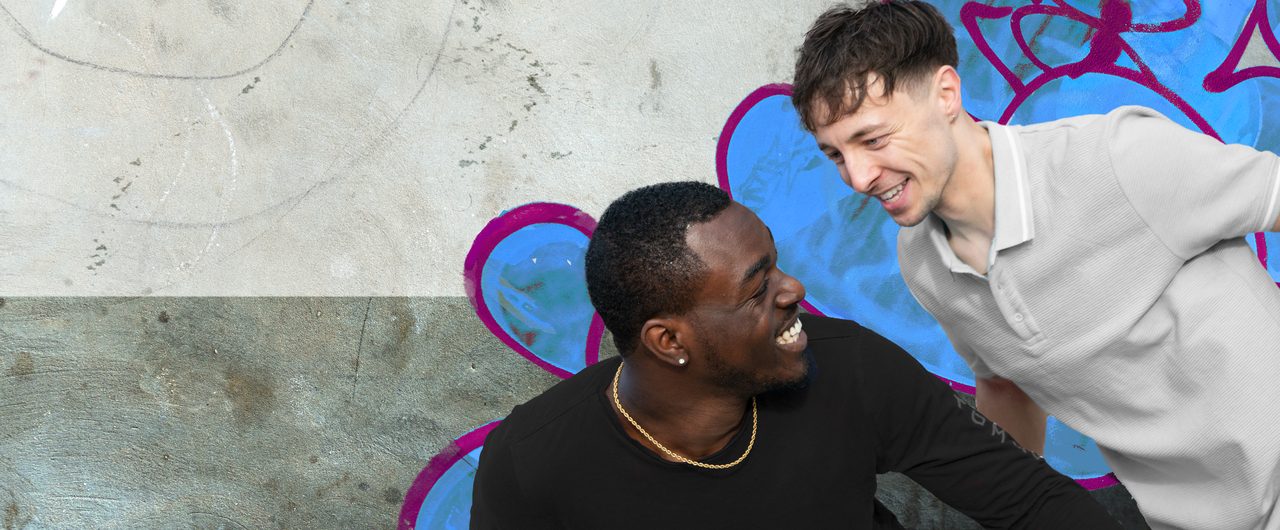On his eighteenth birthday, Harry sits alone feeling sorry for himself until his best-friend – more like brother – Roger unexpectedly shows up to celebrate with him. Roger, now Runaku, was rehomed at 15 leaving Harry in the foster care system until their foster mother Rita passed away. This separation took the two young men down very different paths, but as is revealed over the course of their supposedly dream reunion, their childhoods weren’t as similar as initially thought.
Ryan Calais Cameron’s Human Nurture is a powerful exploration of race, identity, and privilege that covers a lot of ground over the course of its 60-minute runtime, but does so expertly. It’s not hard to know where the play is going, but that’s not the point. It’s how it approaches and encourages conversation about issues within British society that matter.
Be it the erasure of Runaku’s Blackness by his white best friend because he grew up ‘over here’ and therefore isn’t like ‘them’, or his utterance of the classic adage of “How can I be racist, when my best friend is Black?” Calais tackles it all with aplomb, even touching on the frustrations felt by members of the white working class who feel left behind by new terms and definitions, and who refuse to acknowledge that the term ‘privilege’ applies to more than just wealth and class.
At the core of the show’s success are the performances of Justice Ritchie and Lucas Button who navigate Calais Cameron’s script with ease. They play off of one another excellently as they recount childhood memories of playing knock-a-door-run and watching The Fox and the Hound. However, there’s far more going on underneath.
Button delivers self-assuring bombast while twitching with awkward anxiety at seeing Runaku again, almost anticipating the inevitable reckoning that is coming. It’s Ritchie who steals the show, though, with subtle expressions of annoyance over being constantly cut-off and talked over by Harry that capture a lifetime of frustrations. He simmers at first, before exploding at the denouement with a stunning power that has the audience gripped with its unadulterated rawness.
The pair are accompanied on stage by composer Neeta Sarl who performs as the audience are taking their seats before providing live beats throughout the show that compliments the action. Similarly, the sparse yet versatile jigsaw-piece stage offers incredible depth to the performance and characterises Harry’s bed-sit excellently and matches Yami Löfvenberg’s movement design perfectly.
Come the end of Human Nurture there are cheers from audience members in recognition of this powerful and timely piece of theatre. It’s hard not to agree.
